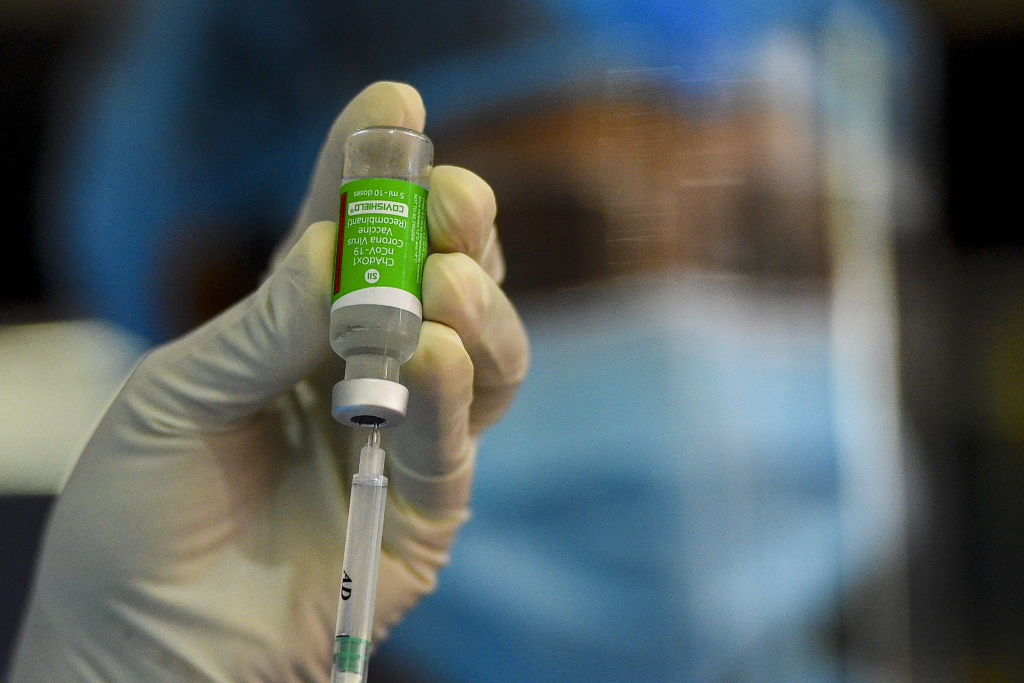The Oxford-AstraZeneca COVID-19 vaccine seems promising. Here's why it's not yet approved in the U.S.


A free daily email with the biggest news stories of the day – and the best features from TheWeek.com
You are now subscribed
Your newsletter sign-up was successful
Confidence in the University of Oxford and AstraZeneca COVID-19 vaccine seems to be growing. New analysis released this week suggests that not only does the vaccine protect against symptomatic COVID-19 infections, it could also significantly curb transmission, making it a potentially very effective tool for bringing the virus to heel.
The vaccine is affordable, easy to produce and store, and has been approved by health regulators in the United Kingdom, India, and Europe, as well as several other countries. But it has not yet been approved by the Food and Drug Administration in the United States, where it's still undergoing late-stage trials. That's led to some harsh criticism. The Mayo Clinic's Vincent Rajkumar called the delay a "huge blunder," while The Atlantic's Conor Friedersdorf described it as "the most profound impingement on my liberty I've faced." Writer Matthew Yglesias lamented a lack of pressure from lawmakers and the U.S. media for speedy approval.
For starters, AstraZeneca hasn't submitted any paperwork to the FDA, so, in short, it can't grant approval for what hasn't been requested, notes Axios' Sam Baker:
The Week
Escape your echo chamber. Get the facts behind the news, plus analysis from multiple perspectives.

Sign up for The Week's Free Newsletters
From our morning news briefing to a weekly Good News Newsletter, get the best of The Week delivered directly to your inbox.
From our morning news briefing to a weekly Good News Newsletter, get the best of The Week delivered directly to your inbox.
But there are more complex reasons behind the holdup. In the U.K., Business Insider notes, health regulators "rely more heavily on a company's data to make conclusions," whereas in the U.S., an independent advisory committee takes a look at data sets from both the FDA and drug companies before the FDA can make its final decision.
In this case, the FDA was concerned following a series of missteps by AstraZeneca, including the company's failure to alert the agency about a decision to halt trials after a U.K. participant fell ill in September, and a strange discrepancy and incomplete testing of promising — but mistakenly-administered — half-strength doses. There's speculation submission and approval will come in April, but until the U.S. gets clearer data, the vaccine will remain in regulatory limbo.
A free daily email with the biggest news stories of the day – and the best features from TheWeek.com
Tim is a staff writer at The Week and has contributed to Bedford and Bowery and The New York Transatlantic. He is a graduate of Occidental College and NYU's journalism school. Tim enjoys writing about baseball, Europe, and extinct megafauna. He lives in New York City.
-
 The environmental cost of GLP-1s
The environmental cost of GLP-1sThe explainer Producing the drugs is a dirty process
-
 Greenland’s capital becomes ground zero for the country’s diplomatic straits
Greenland’s capital becomes ground zero for the country’s diplomatic straitsIN THE SPOTLIGHT A flurry of new consular activity in Nuuk shows how important Greenland has become to Europeans’ anxiety about American imperialism
-
 ‘This is something that happens all too often’
‘This is something that happens all too often’Instant Opinion Opinion, comment and editorials of the day
-
 Trump HHS slashes advised child vaccinations
Trump HHS slashes advised child vaccinationsSpeed Read In a widely condemned move, the CDC will now recommend that children get vaccinated against 11 communicable diseases, not 17
-
 FDA OKs generic abortion pill, riling the right
FDA OKs generic abortion pill, riling the rightSpeed Read The drug in question is a generic version of mifepristone, used to carry out two-thirds of US abortions
-
 RFK Jr. vaccine panel advises restricting MMRV shot
RFK Jr. vaccine panel advises restricting MMRV shotSpeed Read The committee voted to restrict access to a childhood vaccine against chickenpox
-
 Texas declares end to measles outbreak
Texas declares end to measles outbreakSpeed Read The vaccine-preventable disease is still spreading in neighboring states, Mexico and Canada
-
 RFK Jr. shuts down mRNA vaccine funding at agency
RFK Jr. shuts down mRNA vaccine funding at agencySpeed Read The decision canceled or modified 22 projects, primarily for work on vaccines and therapeutics for respiratory viruses
-
 Measles cases surge to 33-year high
Measles cases surge to 33-year highSpeed Read The infection was declared eliminated from the US in 2000 but has seen a resurgence amid vaccine hesitancy
-
 Kennedy's vaccine panel signals skepticism, change
Kennedy's vaccine panel signals skepticism, changeSpeed Read RFK Jr.'s new vaccine advisory board intends to make changes to the decades-old US immunization system
-
 Kennedy ousts entire CDC vaccine advisory panel
Kennedy ousts entire CDC vaccine advisory panelspeed read Health Secretary RFK Jr. is a longtime anti-vaccine activist who has criticized the panel of experts
